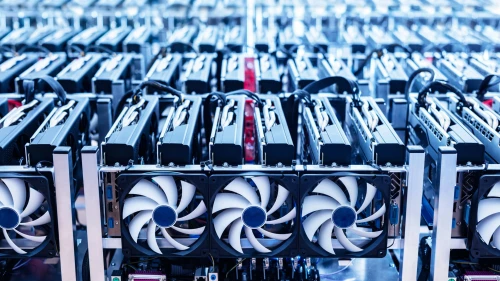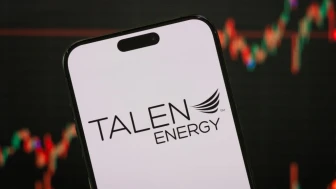China's chief China Economist Robin Xing and his team from Morgan Stanley have stated in a recent note that China's main focus is on speeding up the adoption of AI and autonomous driving technologies, while also working on gradually restructuring the housing sector and local government financing vehicle debt. This strategic shift is part of a broader plan to boost technological innovation and drive economic growth in the country.
The ongoing trade disputes between the two economic giants have cast a shadow over the meetings, with Chinese officials and lawmakers focusing on ways to navigate the challenges posed by the strained relationship with the U.S.
China's Strategic Priorities
According to Robin Xing and the team at Morgan Stanley, China's strategic priorities include accelerating the integration of artificial intelligence (AI) and autonomous driving technologies into various sectors. This move is aimed at enhancing efficiency, productivity, and competitiveness in the rapidly evolving global market.
During this week's meetings, Chinese officials have made noteworthy comments indicating a leaning towards open-source models. This stance suggests a potential shift in the country's approach towards technology and innovation. Embracing open-source could lead to increased collaboration, transparency, and accessibility in the development of software and technology.
Focus on Technological Advancements
With a clear emphasis on technological advancements, China is positioning itself as a global leader in innovation. By investing in AI and autonomous driving, the country aims to not only modernize its industries but also to stay ahead in the race for technological supremacy.
It may also signal China's intention to foster a more inclusive and cooperative environment within the tech industry. Observers are keen to see how this preference for open-source models will manifest in China's policies and practices in the coming months.
Restructuring Housing Sector
In addition to the technological focus, China is also working towards restructuring its housing sector. This initiative is expected to bring about positive changes in the real estate market, promoting sustainable growth and stability in the housing sector.
Amidst the escalating trade tensions, Chinese technology companies have emerged as key players in offsetting the pressure from the U.S. restrictions. China's tech sector, including companies like Huawei and Tencent, has been at the forefront of innovation and development, offering solutions to mitigate the impact of the trade disputes on the Chinese economy.
Addressing Local Government Financing Vehicle Debt
Another key area of concern for China is the debt associated with local government financing vehicles. By making gradual progress in restructuring this debt, the country aims to strengthen financial stability and reduce risks in the financial system.
As China looks to reduce its reliance on foreign technology and create a more self-sufficient ecosystem, the role of Chinese technology in bolstering the country's economic resilience has become increasingly crucial. The parliamentary meetings have underscored the importance of investing in domestic innovation and technology to strengthen China's position in the face of external challenges.
Expected Fiscal Package
Robin Xing and his team at Morgan Stanley have anticipated a fiscal package from China, which includes a significant expansion of 2 trillion yuan (approximately $280 billion). This package is designed to provide mild support for consumption, further stimulating economic growth and domestic spending.
While the U.S.-China trade tensions continue to pose significant challenges, Chinese officials remain optimistic about the resilience of the Chinese economy and the ability of domestic technology companies to navigate these turbulent waters. As the discussions at the parliamentary meetings unfold, the focus remains on harnessing the power of Chinese technology to not only withstand external pressures but also drive sustainable growth and development in the years to come.

























